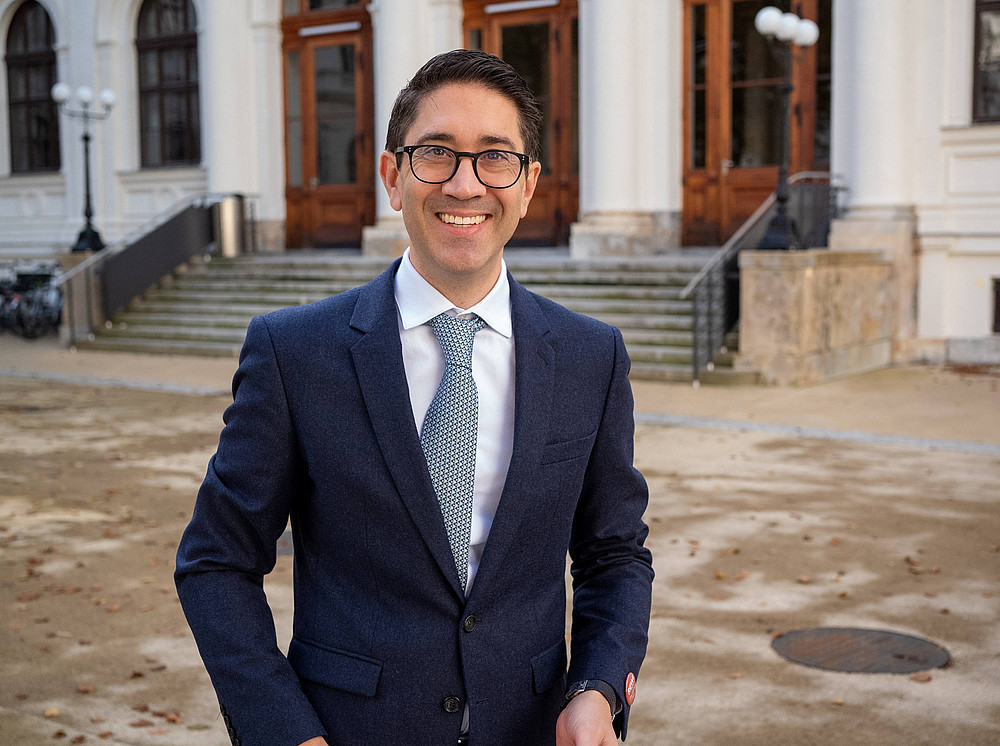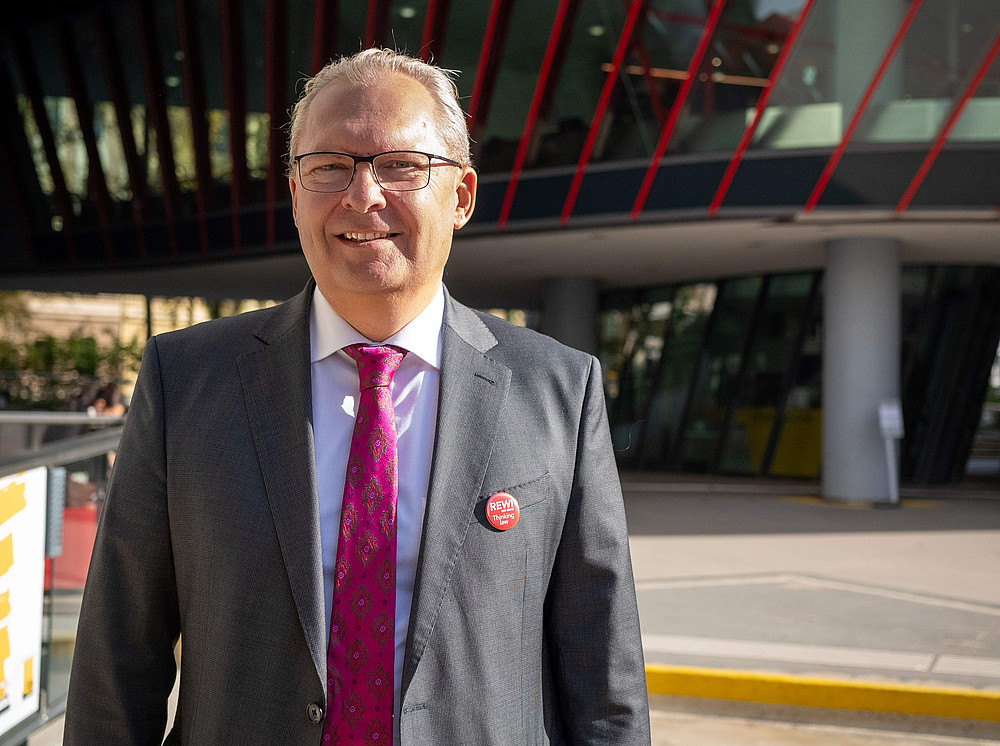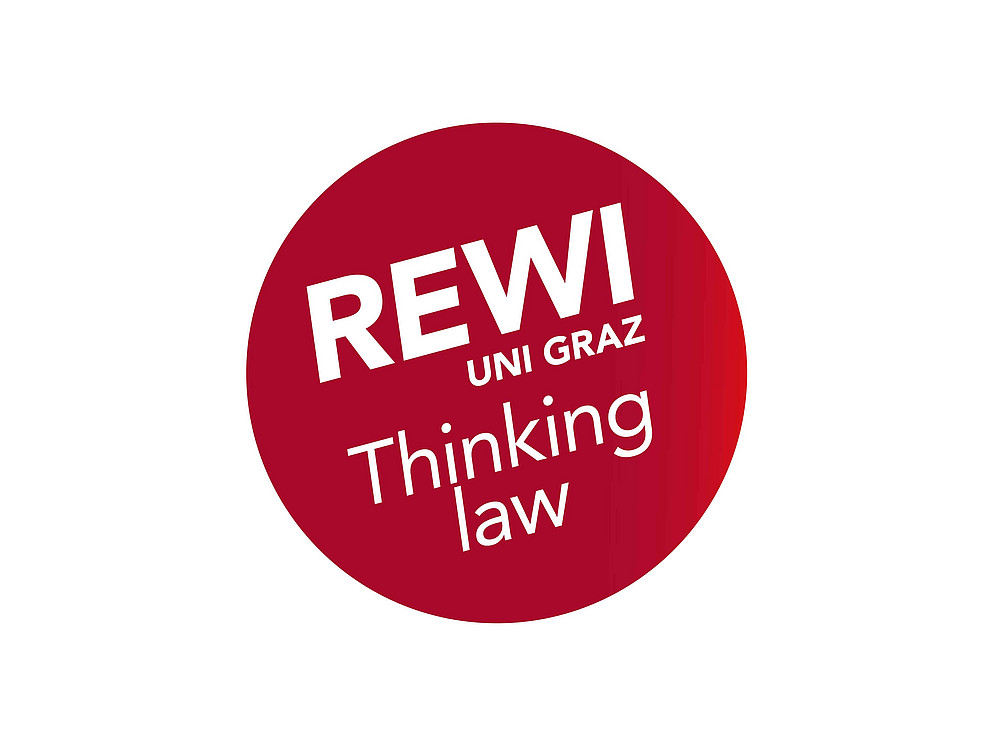Hardly anyone is as much of an institution at our faculty as she is. Gabriele Schmölzer is Professor of Criminal Law, heads the Institute of Criminal Law, Criminal Procedure and Criminology and was Dean of Studies for many years - now she has consequently become Dean of REWI Uni Graz. Since November 1, 2023, she has been the first woman to lead the fortunes of our faculty in the highest position.
Schmölzer's colleagues at the top of the faculty, Vice Dean and Dean of Research Walter Doralt and Dean of Studies Klaus Poier, can rely on a prudent, experienced dean.

"Research in law is marked by a wide range of interests and methods. Collectively, we need to foster diversity, encourage curiosity and we must strive for excellence."
Walter Doralt, Vice-Dean for Research
Law can be analyzed in a doctrinal way, focusing on current rules. It can be analyzed in a historical perspective, comparatively or through the eyes of an economist and also philosophically, ethically or with the help of sociological insights. These examples do not cover all possible angles. Each of those approaches has its merits. And its limitations. What is fair cannot be analyzed with a focus merely on the law as it stands and not even with law and economics. Fairness and other ethical dimensions need an approach based on a particular branch of legal philosophy. What is more efficient can be answered by law and economics. What other systems do can be dealt with in comparative law, leading to a deeper understanding of our own systems strengths and deficiencies after comparing it. Historical analysis is valuable in its own right; it can also lead to a better understanding of our current law. All these approaches complement classical, doctrinal analysis. They also provide a better, more complete basis for legal reform.
Our faculty is a strong team and it is complemented by our international networks. Through the REWI-Fellowship program outstanding colleagues from other systems have come to Graz for research stays while many of our existing co-operations have allowed us to gain new insights at other universities. Strengthening these ties will be one focal point of our research strategy.
"Our focus on an excellent universal legal education, interdisciplinarity, internationality and research-led teaching enables us to equip future lawyers with the tools they need to face the challenges of tomorrow."
Klaus Poier, Dean of Studies

"In a globally and digitally networked society with a multitude of challenges, flexible and dynamic lawyers play an important role. The prosperous coexistence of people is decisively influenced by the creation of adequate rules, their methodically correct interpretation and effective enforcement. The Faculty of Law at the University of Graz is aware of its responsibility to train lawyers who are capable of mastering these challenges." (Excerpt from the Law Curriculum 2022, § 1 para. 2)
Especially in times when our society is facing numerous challenges and we are experiencing profound changes in technological, economic and other respects, we need lawyers who are equipped with the legal tools and a deep understanding of legal problem awareness and the social context of law to take on these challenges. The Faculty of Law at the University of Graz offers the best possible training for this: with a new degree programme that - in keeping with the tradition of "Rewi Graz" - focuses on an excellent universal legal education, interdisciplinarity, internationality and research-led teaching. The complementary link between studies and practice is emphasised by the establishment of moot courts and the recognition of legal internships in addition to the appointment of practice professorships, which qualifies our graduates not only for the core legal professions, but also for many other fields of activity: for example, for key positions in companies, public institutions, international organisations or NGOs, in specialist journalism, politics, tax and management consultancy or in other social institutions such as professional associations.

